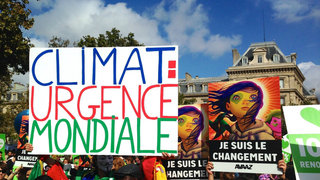
Guests
- Robert ZoellickWorld Bank president, speaking in Cancún.
At the U.N. Climate Change Conference in Cancún, World Bank President Robert Zoellick discussed a new initiative to create a financial market to help save endangered animals. Some critics have described the plan as an effort to turn wild animals into commodities. [includes rush transcript]
Transcript
AMY GOODMAN: We are broadcasting from Cancún, Mexico. On Wednesday, World Bank president Robert Zoellick discussed a new World Bank initiative to create a financial market to help save endangered animals. Some critics have described the plan as an effort to turn wild animals into commodities.
ROBERT ZOELLICK: The other values embedded in forests also need to be recognized, including the wildlife benefits. And these benefits would warrant premium on the carbon. Responsible investors and buyers would be attracted to these values, as well as the others, and they could invest upfront in projects with REDD-plus with wildlife certificates.
The Wildlife Premium Market Initiative will focus on charismatic forest-dwelling species that require large expanses of forest — tigers, jaguars, forest elephants, great apes, macaws, birds of paradise, lemurs. All of these iconic species range over vast areas, and sadly, many of them are endangered. Moreover, if you map the ranges of these species, they cover most of the remaining tropical forests and the most important areas for biodiversity. Protecting these species will protect the other flora and fauna that live under their umbrella.
Under future REDD-plus regimes, countries where these species live could earn carbon credits for reducing emissions from deforestation and degradation below a recognized baseline. By introducing wildlife premium into the mix, countries, provinces and local communities could earn additional payments if the range of species in question expands to include former habitat above some established baseline. We cannot just rely on an offset market. Investment funding will be necessary from the very start.
AMY GOODMAN: World Bank president Robert Zoellick here in Cancún.












Media Options